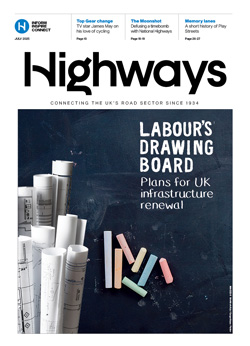A technology entrepreneur has escaped a charge of speeding by using telematics data. The case is the first of its kind it's thought could mean thousands of other motorists could mean other motorists can show they were not speeding.
52 year old Neil Herron, who's based in Sunderland, was accused of driving his vehicle at 40 mph in a 30mph limit on 13th January 2014 at 12.15pm. His vehicle's speed was captured by an LTI 20:20 Ultralyte 1000 Speed Measuring Device operated by a mobile patrol. However, Mr Herron was trialling a driver safety telematic device at the time, and the data produced by the device indicated that the vehicle speed was way below the 30mph speed limit.
Mr Herron therefore decided to challenge the police evidence in court. He used his legal expenses policy to support his claim and 19 months later, the Sunderland Magistrates Court found in his favour after the Crown Prosecution Service offered no evidence.
He believes that, as accurate, affordable GPS technology is now being used by more and more motorists, it is only a matter of time before more and more cases of this type come before the courts.
Mr Herron said 'I would not have had any grounds on which to challenge the allegation if I had not had the data from the device provided by Omnia. Many drivers have faced similar allegations and believed that they were not speeding but no way of proving it. Now we have created and developed the affordable technology which motorists can use to create driving peace of mind.'
Mr Herron was represented by one of the country's leading motoring lawyers, Philip Somarakis, partner at law and professional services firm Gordon Dadds. Mr Somarakis commented: "Based on previous experience in other cases, laser speed detection devices can produce erroneous results and in this case Mr Herron was convinced he was not speeding as alleged and stated he had telematics data to support that view. When confronted with failings in court the prosecution determined to offer no evidence."
Mr Somarakis, who is also Company Secretary to the Association of Car Fleet Operators (ACFO) added: "For many years ?fleet managers have recognised the potential benefits of using technology to monitor driver behaviour. The principal objective of telematics is to encourage safe and efficient driving. We are all in favour of reducing excessive driver speed on our roads; that said, being able to rely on technology to prove compliance with a speed limit should not be underestimated."
JP Taylor, Managing Director of Omnia Smart Technologies who had developed the solution Mr Herron was original trialling added: "Advancements in technology have enabled Omnia to create our Intuition service offering that not only provides value added service to our clients but our clients also own their data. We enable users like Mr Herron to use their data however they wish, whether it be to get a preferential rate from their insurers based on good driving behaviour or, in this case, being able to successfully challenge a speeding allegation. It is our belief that telematics will be become a standard in all vehicles, both newly manufactured and used. People are more security conscious and should have the right to own their own tracking data and Intuition ensures this while still offering all the value added services available from other telematics products."





